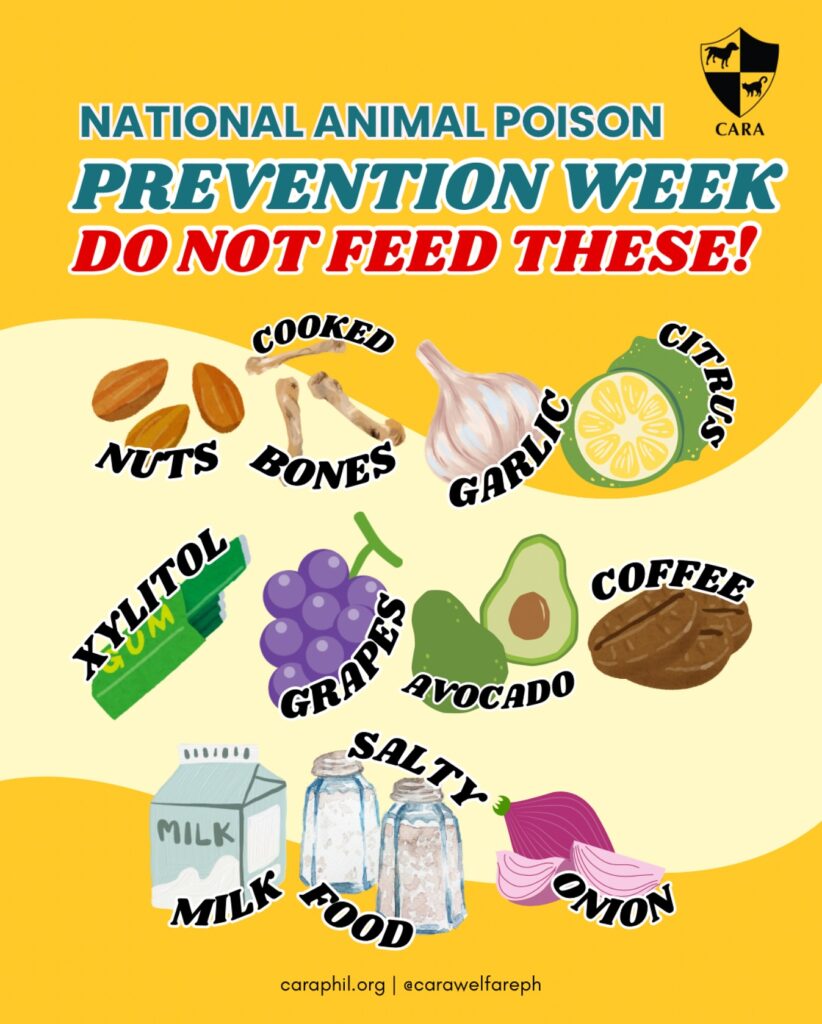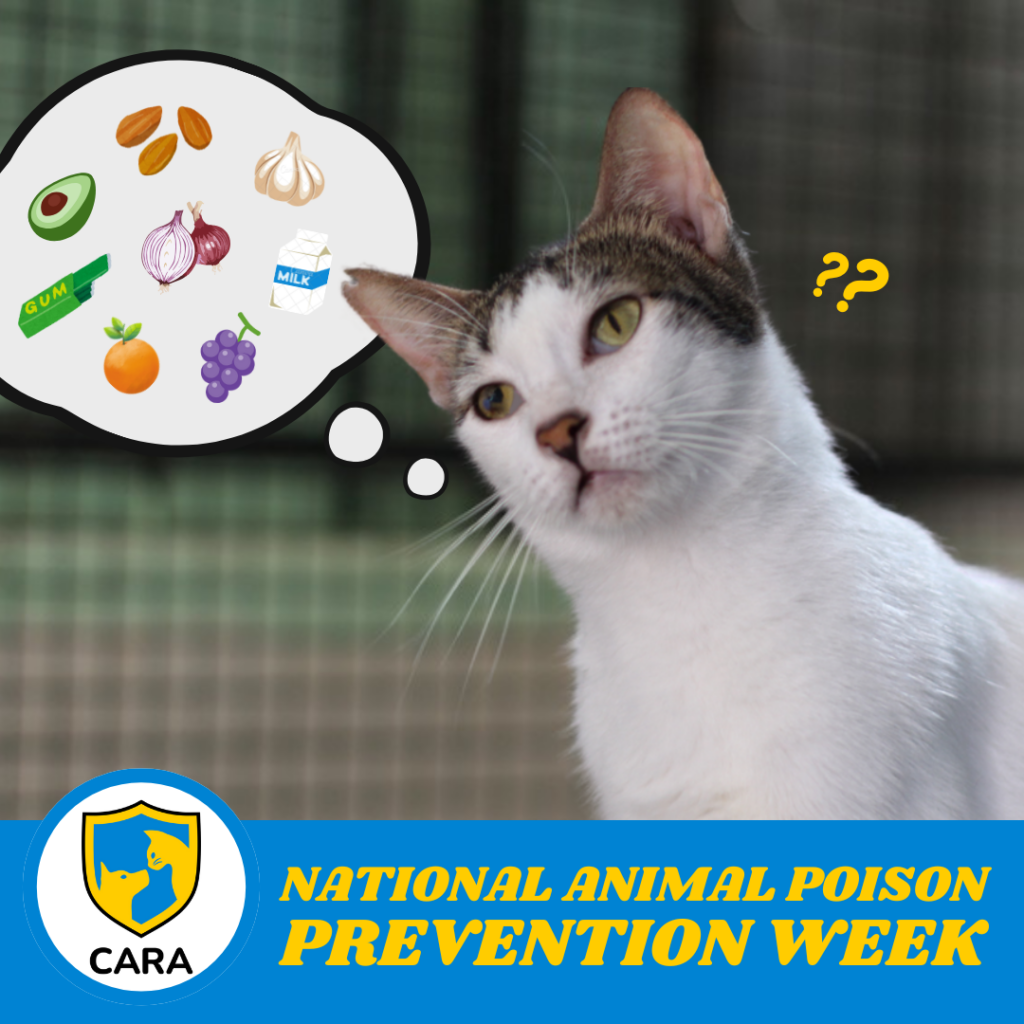Written by Mica Tolentino
Every pet parent knows how curious our furry friends can be: whether it’s a sneaky nibble from the dining table or an innocent sniff at a new plant, cats and dogs love to explore the world through taste. Our homes may feel like the safest place for our pets, but did you know that some everyday household items can be highly toxic to them?
Every third week of March, we observe National Animal Poison Prevention Week – raising awareness about potential dangers in our homes and how to prevent accidental poisoning.
⚠️ Toxic treats at home

Keep these toxic foods far away from curious paws:
- Nuts – Some nuts, like macadamia nuts and walnuts, can cause weakness, tremors, and vomiting in our pets. Even “safe” nuts are high in fat, which can lead to stomach upset and pancreatitis.
- Cooked Bones – Unlike raw bones, cooked bones can splinter inside your pet’s gastrointestinal tract, causing serious injuries or blockages.
- Garlic & Onions – These can cause stomach upset and red blood cell damage, leading to anemia. Cats are especially sensitive, but dogs are at risk too!
- Citrus Fruits – The high acidity in citrus can cause stomach upset, especially when ingested in large amounts.
- Xylitol (Artificial Sweetener) – Found in sugar-free gum, candies, and even some peanut butter brands, xylitol can cause a dangerous drop in blood sugar and liver failure in dogs.
- Grapes & Raisins – Even a small amount can cause kidney failure in pets. Having none at all is what’s safe!
- Avocado – Contains persin, a toxin that can cause stomach upset and heart issues in some pets. While not all animals react to it, it’s better to be safe than sorry!
- Coffee & Caffeine – Both cats and dogs are highly sensitive to caffeine, which can cause rapid heartbeat, restlessness, seizures, and even death.
- Milk & Dairy – While we often picture cats happily lapping up milk, many pets are actually lactose intolerant. Dairy can lead to digestive issues like diarrhea and gas.
- Salty Foods – High amounts of salt can cause dehydration, vomiting, diarrhea, and even sodium poisoning in pets. No chips or salty snacks for them!
Pets also need protection from non-edible household hazards like rat poisons, heavy metals, essential oils, human medications, and cleaning chemicals (like bleach or fabric softeners). For all the plant Titas and Titos out there – make sure the plants and flowers you bring home are pet-safe too!
😻 A happy pet is a healthy pet!
A good rule of thumb? If you’re unsure whether something is safe for your pet, it’s always best to avoid sharing human food altogether. Here are a few tips to keep your pets safe:
- Feed a balanced pet diet – Stick to high-quality pet-safe food and treats made specifically for cats and dogs.
- Keep dangerous foods out of reach – Make sure toxic foods are stored securely.
- Educate your family – Kids (and some adults!) may not know certain foods are dangerous for pets. Research and spread awareness!
- Know the signs of poisoning – Vomiting, diarrhea, weakness, tremors, or unusual behavior could be a sign your pet ate something toxic. If you notice these symptoms, contact a vet immediately.
Our pets have a way of making us melt with their cute begging eyes, but just because they want a bite of our food doesn’t always mean it’s a good idea. Keeping our furry friends safe is as simple as being mindful of what they eat. Let’s keep our pets healthy and happy for years to come!
References:
https://www.aspca.org/pet-care/animal-poison-control/people-foods-avoid-feeding-your-pets
https://www.fda.gov/animal-veterinary/animal-health-literacy/potentially-dangerous-items-your-pet



